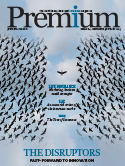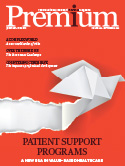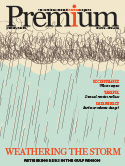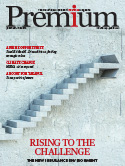Regulators address resilience of insurance sector

“The data shows that the value of compensation paid by the insurance companies in the UAE for claims related to COVID-19 amounted to more than AED588 million till the end of August 2020,” said Ebrahim Obaid Al Zaabi, director general of the Insurance Authority (IA). He was speaking at the 15th Annual Healthcare Insurance Forum, a virtual event held over two days.
Al Zaabi highlighted the precautionary measures, stimulus packages and initiatives launched by the IA to maintain the continuity of doing business and mitigate the impact of the Coronavirus crisis to the sector. He also said the crisis brought about the advent of new insurance products in line with the change in risk.
“The result of the insurance sector operations during the period of the coronavirus also highlights the robust financial solvency of insurance companies and the availability of the necessary liquidity to pay any potential compensation resulting from the consequences of the pandemic in the short term. The Gross Written Premiums of insurance during the first half of the current year amounted to AED12.2 billion compared to AED12.2 billion in the first half of 2019. Moreover the net claims was AED7.3 billion during the first half of 2020 compared to AED8 billion last year,” he observed.
“In promoting the growth of the sector the IA is currently working on updating the previously issued legal frameworks which regulates insurance business. We aim to develop them in accordance with the best and latest international practices and to enhance the digital transformation system in all areas of insurance so that they will be in line with the UAE strategies and plans for the next 50 years’ time to contribute in achieving national goals,” he added.
Calling for additional sharing of information, Dr. Amin Al Amiri, assistant undersecretary of Public Health Policy and Licensing Sector at the UAE Ministry of Health and Prevention, said that there exists a gap between insurance companies and the government especially when it comes to catering to changing customer behaviour. “I think we have to fill this gap and it is time now that insurance companies through the federal institutions of insurance to join the Ministry of Health in sharing those challenges, discussing them and working towards the expectation of the public and the challenges they are facing that we will be able to predict and help. Another challenge is the increasing prevalence of Non-Communicable Disease (NCD). It is a huge economical burden estimated back in 2010 to be USD863 billion and is being forecasted to amount to USD1044 billion by 2030. We need to fight against this number and the NCDs. We cannot work alone, the insurance companies have to change their policy and work towards prediction and prevention. The increasing cost of service delivery and the health care innovations will increase the cost and the proper utilisation of the health care services.”
He also spoke about the advantages of telemedicine which was adopted much earlier in the country but really took off operations during the pandemic. “Telemedicine will really minimise the cost burden on insurance companies because of lesser number of visits and lessen the burden of expenses on the patients themselves.,” he said.
Blockchain in organ donation that was launched in 2019 will reduce the burden of insurers, time and suffering of patients and family members.
Adopting innovative ideas will help health insurance programmes and minimise the economical burden on them, such as the launch of a blockchain programme for organ donation in 2019, he commented.





































